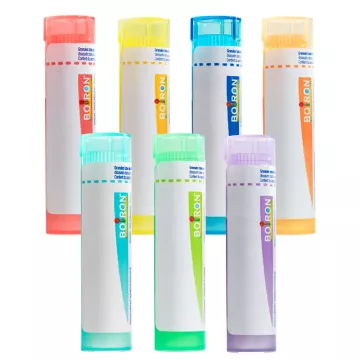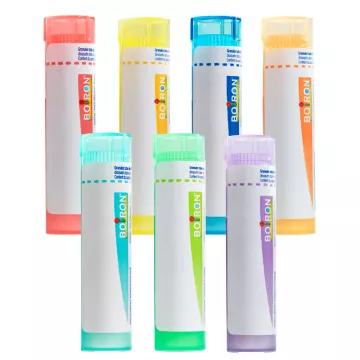

Bronchiolitis is a serious condition, but with early recognition of symptoms and appropriate treatment, the majority of children make a full recovery. It's essential to consult a healthcare professional as soon as the first signs appear, particularly in infants and young children, to ensure appropriate management and prevent complications.
What is bronchiolitis?
Bronchiolitis is a viral respiratory infection that mainly affects infants and young children. This characteristic condition manifests itself as inflammation of the small airways in the lungs, known as bronchioles. Often caused by the respiratory syncytial virus (RSV), bronchiolitis is particularly common during the winter months.
How to recognize the symptoms of bronchiolitis?
Symptoms of bronchiolitis generally begin with signs similar to those of a cold, including a runny nose, mild cough and sometimes a slight fever. As the days go by, these symptoms can worsen, leading to a more severe cough, breathing difficulties and wheezing. In infants, feeding difficulties may also be observed.
What causes bronchiolitis?
The main agent responsible for bronchiolitis is the respiratory syncytial virus (RSV), although other viruses can also cause it. RSV is easily transmitted by contact with infected secretions or contaminated surfaces, enabling it to spread rapidly in communal environments.
How is bronchiolitis treated?
Treatment of bronchiolitis is based primarily on symptom relief, as there is no specific treatment to eliminate the virus. Measures include regular hydration, maintaining good oxygenation and, in some cases, the use of medication to ease breathing. Antibiotics are not effective against bronchiolitis, as it is caused by a virus.
Can bronchiolitis be prevented?
Preventing bronchiolitis involves a number of simple but effective measures: regular hand-washing, avoiding contact with sick people, and maintaining good general hygiene. For at-risk populations, such as premature babies or children with certain medical conditions, prophylaxis with monoclonal antibodies may be considered during the high incidence season.
Why is bronchiolitis a major concern for infants?
Infants, especially those under 6 months of age, are most likely to develop severe forms of bronchiolitis due to their smaller airways and less mature immune systems. This can sometimes require hospitalization for close monitoring and respiratory support.
How long does bronchiolitis last in children?
The duration of bronchiolitis varies from child to child, but symptoms generally last 1 to 2 weeks. The acute phase, characterized by intense coughing and breathing difficulties, usually lasts a few days. It is important to note that the cough may persist for several weeks after the other symptoms have resolved.
Can adults contract bronchiolitis too?
Although bronchiolitis is mainly associated with infants and young children, adults can also be infected by the virus responsible for the disease, in particular RSV. In adults, symptoms tend to be more moderate, often likened to those of a common cold, but can be more severe in the elderly or those with underlying medical conditions.
How do you tell the difference between bronchiolitis and asthma?
Although bronchiolitis and asthma may present similar symptoms, such as wheezing and breathing difficulties, they are caused by different factors. Bronchiolitis is a specific viral infection of the lower respiratory tract, while asthma is a chronic condition characterized by inflammation and narrowing of the airways. An accurate diagnosis by a healthcare professional is essential for proper management.
Are there any complications associated with bronchiolitis?
In the majority of cases, bronchiolitis resolves without serious complications. However, in some children, particularly those with risk factors such as prematurity or chronic medical conditions, bronchiolitis can lead to complications such as pneumonia, apnea (temporary cessation of breathing), or hospitalization for respiratory assistance.
How does climate influence bronchiolitis?
Bronchiolitis has a marked seasonal pattern, with a higher incidence during the winter months and early spring. This seasonal peak is due to the greater circulation of respiratory viruses during these periods, particularly RSV. Cold, damp weather conditions can also favor the survival and transmission of viruses, increasing the risk of infection.